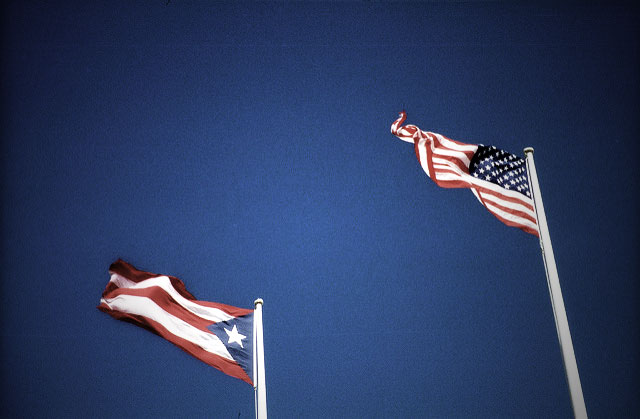
Support justice-driven, accurate and transparent news — make a quick donation to Truthout today!
Legislation that would allow the government of Puerto Rico to restructure its debt cleared the final major hurdle before a critical deadline later this week.
The bill passed a cloture motion in the Senate on Wednesday, by a 68-32 vote. The maneuver means the legislation, now, can not be delayed indefinitely.
Though most Democrats voted for it, some blasted the legislation for creating an unelected board to oversee public finances on the island — a development that will likely encourage harsh austerity measures, with technocrats unaccountable to Puerto Ricans set to make crucial decisions.
Dems also took exception to provisions exempting Puerto Ricans from recent Labor Department rules that expand overtime pay eligibility. They also hit out at the bill, for carving a loophole in federal minimum wage laws, for inhabitants on the island under the age of 25.
“No” votes from Senate Dems included those cast by Bernie Sanders (I-Vt.) and the only other lawmaker in the upper house to endorse his campaign in the Democratic primary: Jeff Merkley (D-Ore.).
Sens. Sherrod Brown (D-Ohio), a prominent supporter of Hillary Clinton in the primary, also voted “no.” So too, did Sen. Elizabeth Warren (D-Mass.), a leading progressive who is rumored to be Clinton’s top choice for Vice President.
Overall, Democrats and party caucus members were split 32-12 in favor of the measure.
Sen. Bob Menendez (D-NJ) had talked earlier this week about attempting to hold up the bill, if it wasn’t amended. Obstruction would have required the support of at least 40 other senators.
Time, however, was a major factor. Puerto Rico will default on $2 billion in debt payments by Friday, if laws preventing it from restructuring public debt aren’t changed. The House, which already approved of the bill, is in recess until next Tuesday.
States are currently afforded the rights to restructure government debt and markets for municipal debt under their jurisdiction. The dearth of the same privileges for Puerto Rico were noted by Democratic senators this week.
“Basically, four Republicans, who likely believe in strong austerity programs will be indefinitely running that island for the indefinite future,” Sen. Bernie Sanders (I-Vt.) said Tuesday, on the floor of the Senate. Sanders was referring to the fact that the board will have seven members.
“Would my friend from New Jersey agree that this is colonialism at his worst?” he asked Menendez.
“Oh, absolutely,” Menendez replied. “I have called this legislation the ultimate neo-colonialism that we as a Congress would be passing. It treats the citizens of Puerto Rico like subjects, not like citizens.”
Earlier this month, the Supreme Court reaffirmed, by a 5-2 vote, that Puerto Rico is not allowed to restructure its municipal debt — worth roughly $20 billion.
“The [Bankruptcy] Code’s pre-emption provision has prohibited States and Territories defined as ‘States’ from enacting their own municipal bankruptcy schemes for 70 years,” Justice Clarence Thomas wrote for the majority.
In 1984, Congress exempted Puerto Rico from Chapter 9 and Chapter 11 bankruptcy under federal law.
Puerto Rico is currently facing about $72 billion in debt and another $43 billion in unfunded pension liabilities.
The administration has for months been calling on Congress to pass legislation that would enable Puerto Rico to refinance its debt.
“There’s an immediate crisis in Puerto Rico. It’s not a future crisis,” Treasury Secretary Jack Lew said in March, before the House Financial Services Committee.
Lew noted then that there were “big payments due in May and July.”
Puerto Rico missed the May payment, which was worth about $370 million.
Not only is the July payment much larger, it is also, as Lew noted Monday, “constitutionally prioritized.”
“In the event of default, and if creditor lawsuits are successful, a judge could immediately order Puerto Rico to pay creditors over essential services such as health, education, and public safety,” he remarked.
Press freedom is under attack
As Trump cracks down on political speech, independent media is increasingly necessary.
Truthout produces reporting you won’t see in the mainstream: journalism from the frontlines of global conflict, interviews with grassroots movement leaders, high-quality legal analysis and more.
Our work is possible thanks to reader support. Help Truthout catalyze change and social justice — make a tax-deductible monthly or one-time donation today.